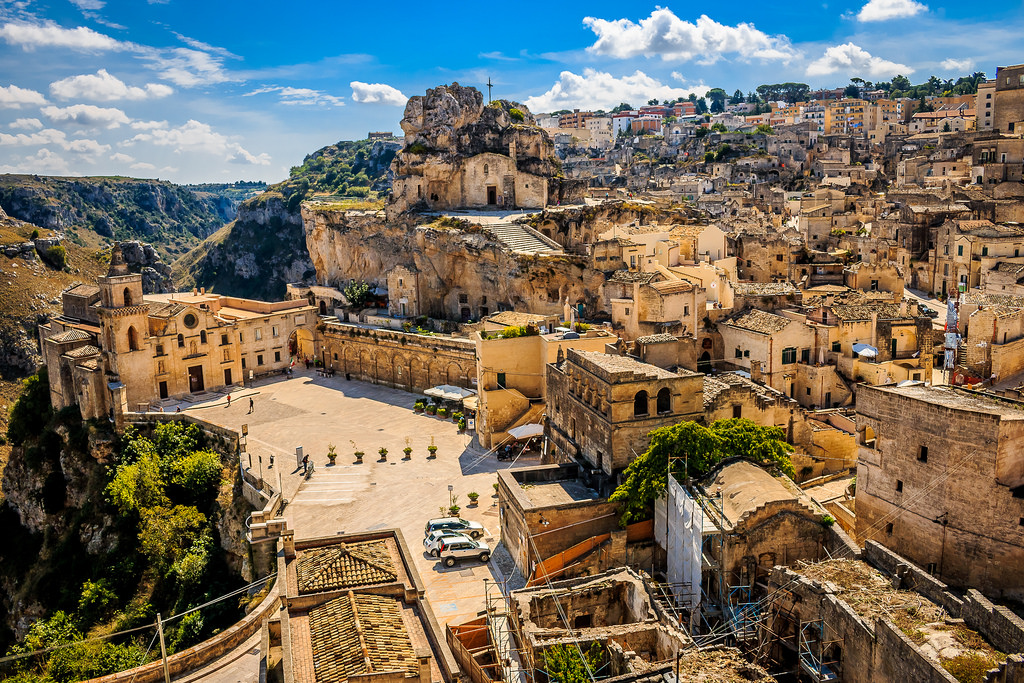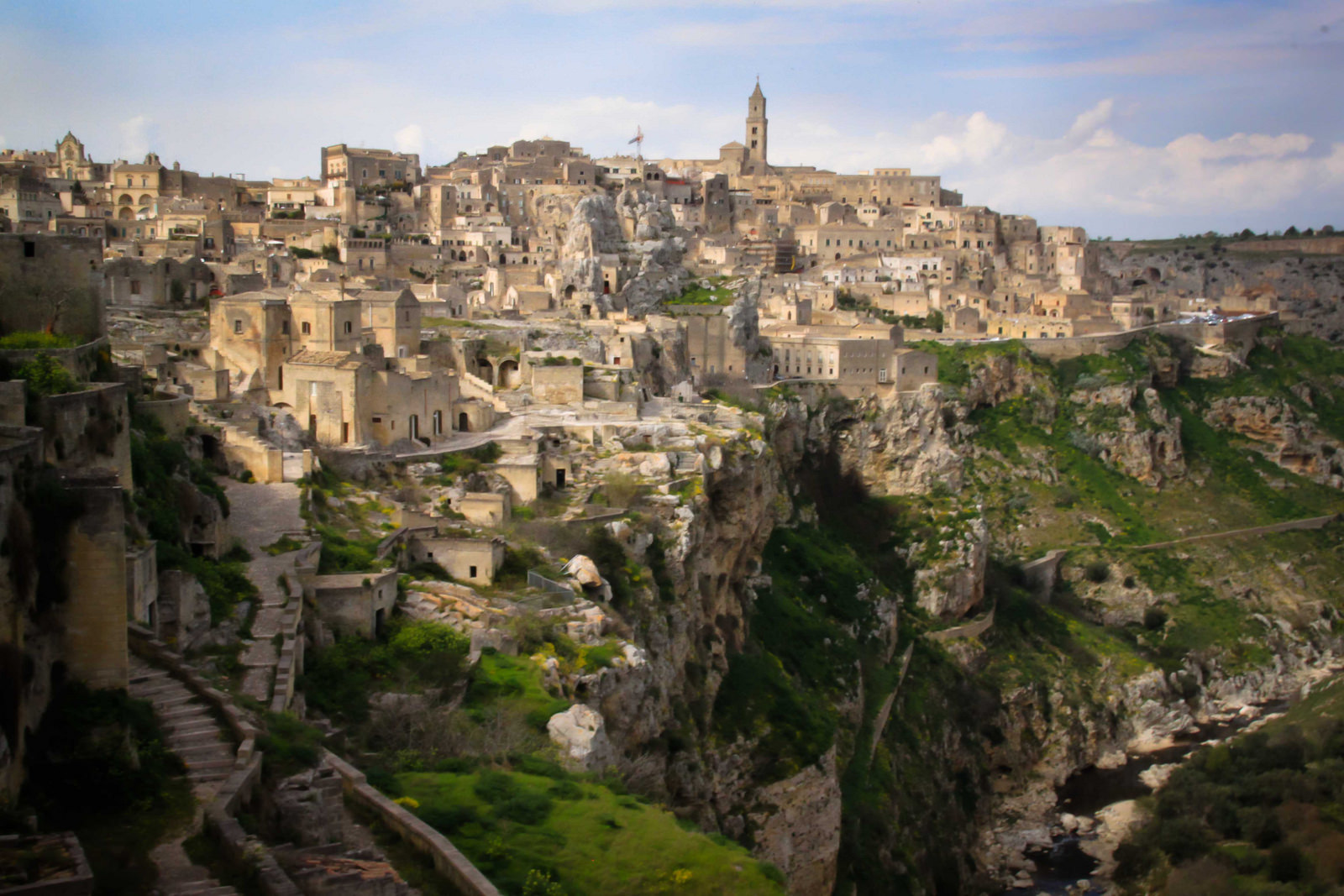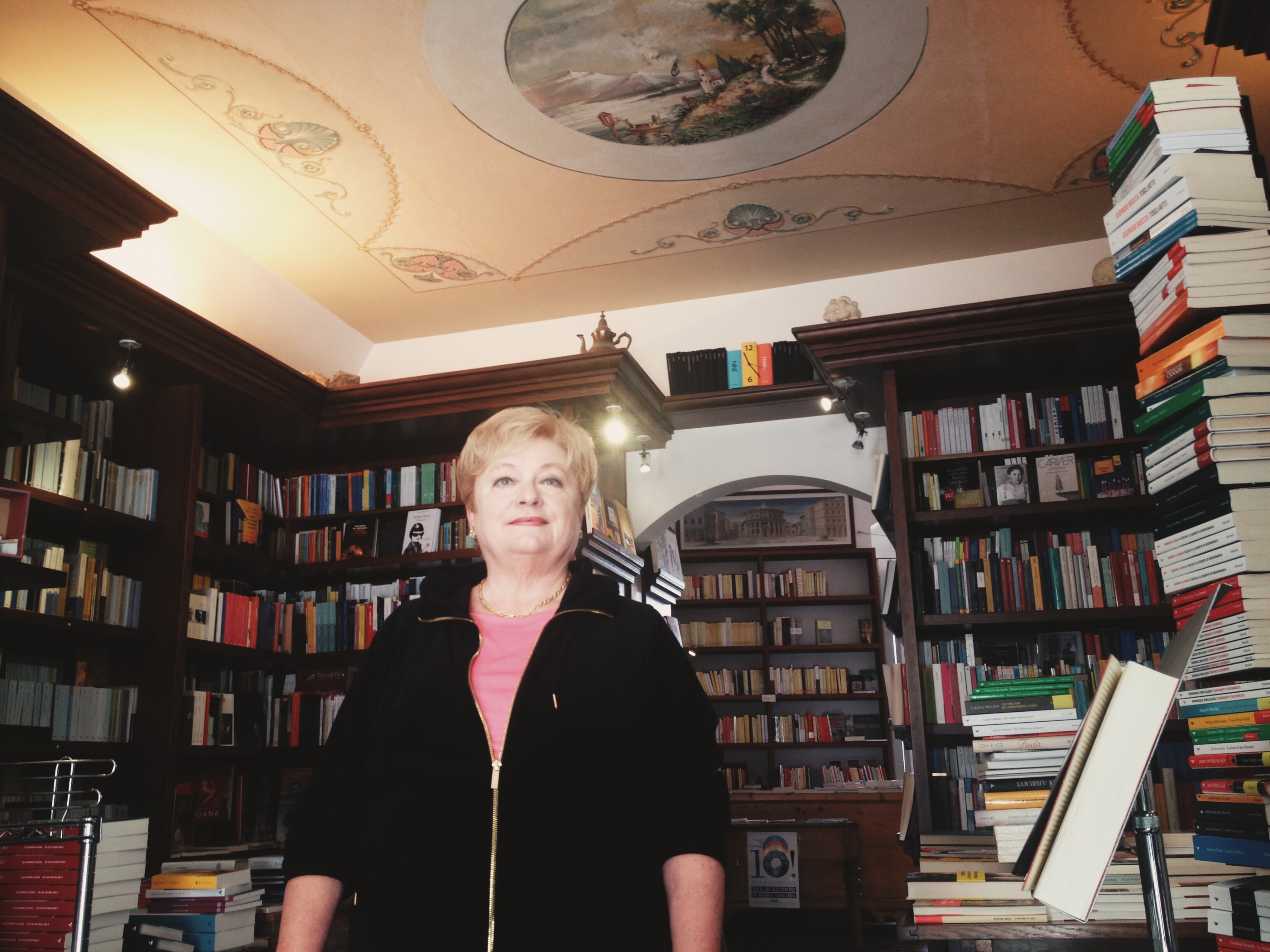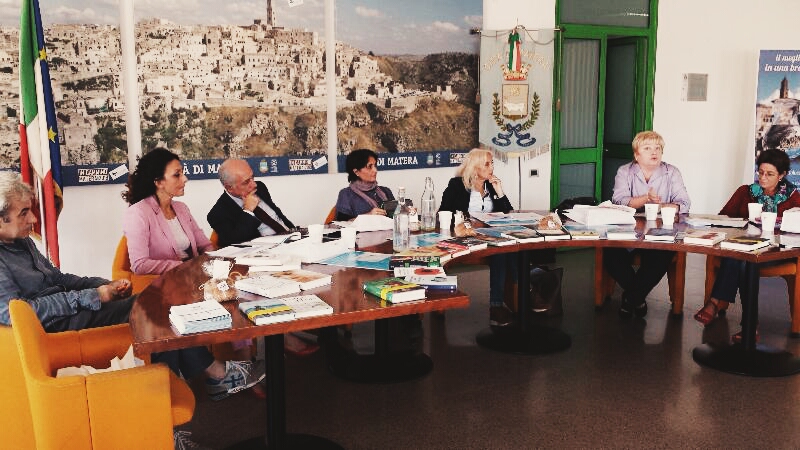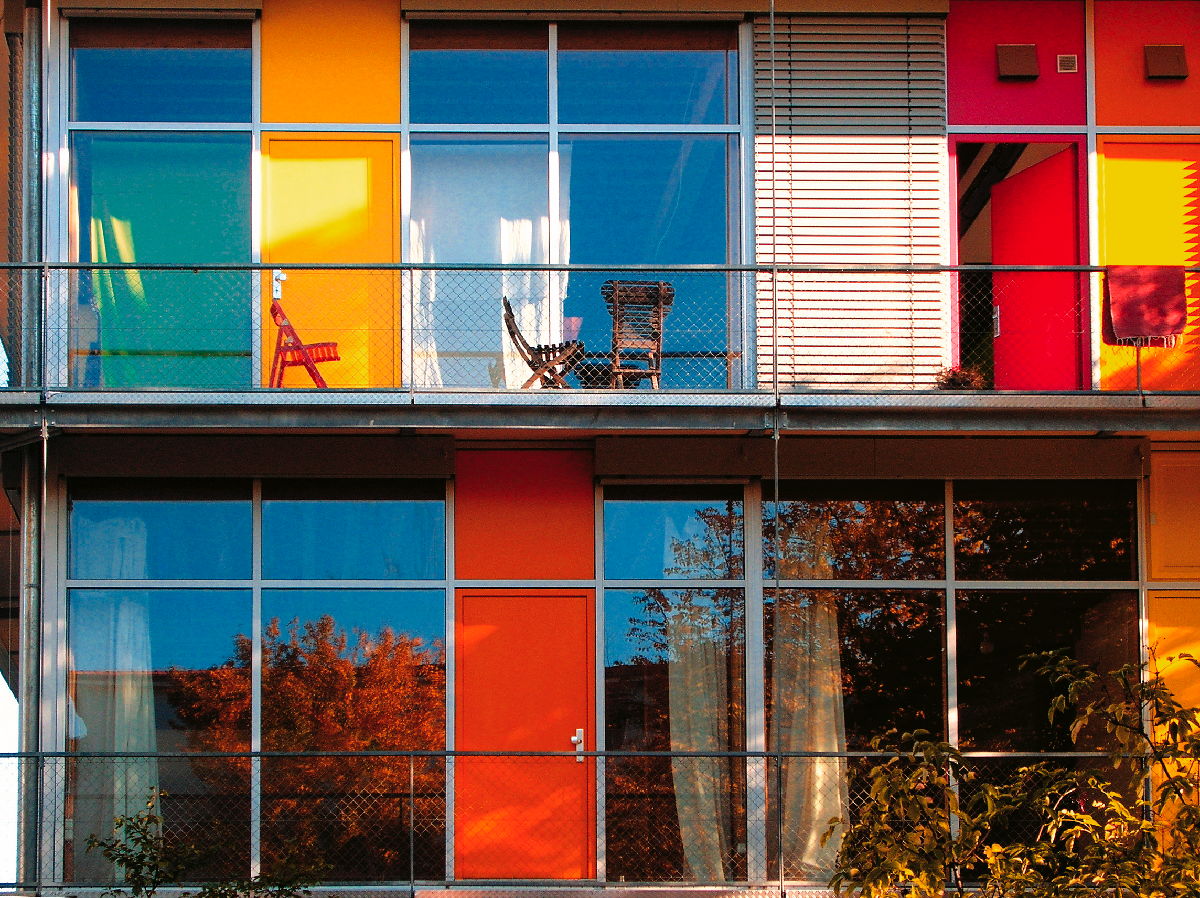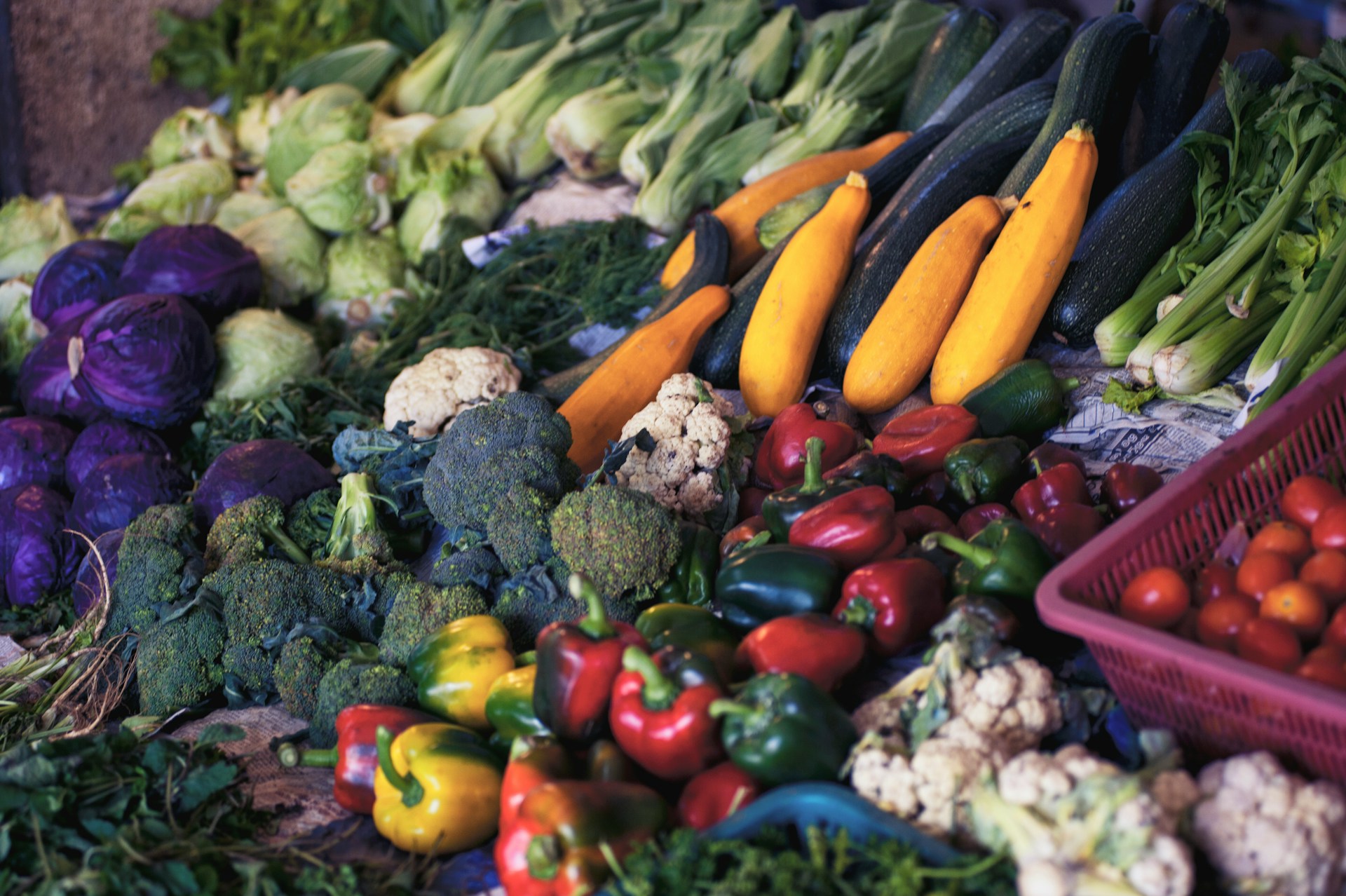Elizabeth Jennings has many namesakes. If you search for her on Google, you’ll find a deceased English poet, an African-American activist and more, but there is only one Elizabeth Jennings, the bestselling romantic suspense writer who lives in Italy and created the most successful writers’ conference on the European continent, the Women’s Fiction Festival held every year in Matera, Italy, since 2004.
How come such a difficult-to-reach, small town like Matera hosts such a well-known cultural event?
Matera, with a baroque center like so many in Southern Italy, became known in 1993 when it was declared a UNESCO World Heritage Site for its “Sassi” district, one of the oldest continuously inhabited settlements on earth, a spectacular series of dwellings hewn in the rock forty thousand years ago.
But the Sassi are not the answer, though they no doubt make the stay in Matera something to remember. And neither is the fact that Matera has just been nominated “Cultural Capital of Europe for 2019”, beating Lecce, Siena, Ravenna, Cagliari and Perugia to the honor. Indeed, one of the elements that moved the European Commission to choose Matera over its rivals was the Women’s Fiction Festival itself and its enduring success.
So the explanation for the Fiction Festival is to be found elsewhere – in Elizabeth Jennings herself, her dynamism and extraordinary entrepreneurship.
Here is someone who is capable of writing three books a year and still find the time to contact celebrities and gurus in the publishing industry to organize her annual writers’ fest in Matera. Like so many other authors and editors across both Europe and America who are drawn to Matera, I’ve gone several times to the Festival and related “brainstorming” events for writers. I attended the latest edition of the Festival, the 11th, held as always in September, from the 25th to the 28th, and had a chance to chat at length with Elizabeth.This was a very special edition that drew major self-published celebrities like Bella André, Tina Folsom and Debra Holland, the latter better known as a successful “hybrid” author, with one foot in self-publishing and the other in “legacy” publishing. Yet, it is a fact that, to some extent, all successful self-published authors go “hybrid” to sell their books in brick-and-mortar bookstores, including Bella André who, with her 30-plus titles runs what amounts to her own personal publishing house, using some 15 consultants to cater to her book marketing needs.
………………………………………………………………………………………………………….. Related articles : REEDSY THE FOUNDER article by Claude Forthomme OIL SPILLS: A DOUBLE STANDARD WORLD article by Hannah Fisher-Lauder …………………………………………………………………………………………………………..The Festival also drew major editors from historic publishing houses in both America and Italy, including St Martin’s Press, HarperCollins, Mondadori and Rizzoli, and star literary agents, like Andrew Lownie (from the UK), Laura Ceccacci (Italy) and Christine Witthohn and Ann Colette (US). Digital publishing managers were in attendance, Amazon and Kobo of course, but also Reedsy, an innovative startup aimed at providing free-lance editorial services to self-published authors. We had publishing gurus, Jane Friedman from the University of Virginia and David Gaughran, author of best-selling guides for self-publishing and an award-winning American film producer, Marilyn Atlas. A truly international gathering!
In the photo: Elizabeth Jennings
I had a long chat with Elizabeth Jennings in the delightful venue of the Festival, in the Monacelle hotel, a delightful restored 16th century convent whose suggestive vaulted rooms are used to host the sessions in English. Here are highlights of our conversation.
Elizabeth, I know you’re very happy about Matera becoming Europe’s “Capital of Culture” in 2019. How did your Festival help in this nomination?
Well, I know that the Festival was one of the main cultural events listed in the candidacy dossier. We’ve worked very hard to promote a love of reading in what is, alas, the Italian region that reads least. Families in Basilicata have fewer books in their home libraries than families in all the other regions of Italy. Oddly enough though, ebook reading is very popular here.
What does this nomination mean for the Festival?
I think it means a lot. It puts Matera on the map. In the beginning it took a LOT of persuasion to convince writers to fly into Bari and take a shuttle to get to Matera, a fairly unknown city. Now when I go to writers’ conferences in the US, people often stop me because I help run ‘that writers’ conference in Italy’. I’m hoping with all my heart that the people of Matera can work closely with the European officials organizing the Cultural Capital of Europe 2019 program. For centuries, millennia even, Matera has been cut off from the world. The people of Matera long to join the world and I am hoping the next five years will bring the city into the European-wide, world-wide cultural conversation.
In the photo: Presentation of the 2014 festival
This year the Festival was sold out. Is this the first time it happens? How do you explain the rising success?
Yes, the first time, though attendance has been steadily rising over the years. We have now a hundred participants, still a small meeting.
How do you explain the rising success?
No doubt the fact that this is practically the only event of its kind in Italy and in most of Europe, Germany included. Literary events on the continent do not normally include both writers and publishing industry professionals, from editors to literary agents. This gives a chance to writers to pitch their work and editors to look for new talent.
Talent scouting is key, of course, and I must confess I’m surprised that the gap hasn’t been filled by any other writers’ conference around Italy or elsewhere in Europe – except perhaps in the UK. Why is that?
I think that in the UK there are only two or three events that bring together writers, editors and agents. In the rest of Europe, it doesn’t happen, I’m not sure why. I suspect that partly, it is because publishing in Europe is traditionally a closed shop. The ‘pool’ for picking books is small, mainly white, mainly male, mainly older. Newer voices have a very tough time getting heard. Books are expensive, have always been expensive and being a voracious reader is an expensive hobby. Up until very recently, European publishing had no real reason to open up to new talents.
What is your take on what is happening in publishing because of the digital revolution?
Traditional paper publishing operates under the ‘scarcity’ model. Books are expensive, rare and difficult to find (unless you live in Rome, Milan, Florence or Turin). Digital publishing operates on the ‘abundance’ model. Books are plentiful, cheap and very easy to access. So European publishing has been caught in a dilemma. Readers want lots of different kinds of books but traditional publishers have no way to suddenly ramp up their talent scouting and their production schedule. The Digital Revolution has created disruption in publishing just as it has in music and films and TV.
Can you tell us a little about how the Festival was born. I know Maria Paola Romeo whom you met many years ago when she was an editor at Mondadori and who is now a literary agent and publisher – she’s launched Emma Books in 2012 – has played a major role. How did it all happen?
Actually, the Festival was the brain child of four of us. First, in February of 2004 I ‘met’ Maria Paola Romeo over the phone. At the time she was the editorial manager of Harlequin Mondadori, the Italian Harlequin. She asked me to translate an Italian novel into English. I did and we became phone friends. She published romance and I wrote it and we often discussed the market, the nature of writing, what needed changing. I told her that I thought Matera would make a perfect venue for a writers’ conference. The idea started taking shape and form. I was plugged into any number of writers’ organizations in the US and discovered that there was enthusiasm by American writers to come to a writers’ conference and retreat in Italy. Maria Paola knew the publishing industry inside out and was in contact with a number of editors and agents, both in Italy and abroad. Then two more joined our little group, Maria Teresa Cascino, a media expert, just back from three years in the States and footloose, ready for a challenge, and our fourth partner, Giovanni Moliterni. He runs the most charming indie bookshop I’ve ever seen, with an eclectic mix of books under a vaulted, frescoed ceiling, so typical of Matera!
With the continuing success of the Festival, don’t you feel you are at a crossroads and that you may need to expand in order to accommodate the rising demand?
Ah. With the advent of 2019 and Matera spending the next five years preparing to become Cultural Capital of Europe there is indeed a lot of scope for growth. The Romance Writers of American writers conference held every year in July has 3000 registered writers plus a plethora of agents and editors. The San Francisco Writers Conference, where I have spoken for the last 5 years, has 600 attendees, plus agents and editors. And we are international!
But…the charm of the Festival is its intimacy. Many of the meetings and networking are by happenstance but they are of a very real value. When the sessions end, the attendees and the agents and editors and publishing professionals go out for a drink or a meal and meet up and strike up conversations. It is not stratified as so many other conferences are. It is open and welcoming and I would hate to see that disappear under the strain of becoming a gigantic event.
Let me turn to this edition of the Festival. This year you focused on self-publishing and the digital disruption in publishing, a hot subject and one that often brings out the worst in people. I talked to Jane Friedman about this and she told me how impressed she was with the civil tone of the debates compared to writers’ conferences in America. How do you explain the difference?
Yes there is now a lot of acrimony in the United States between self published and traditionally published writers. There is a lot of psychological investment in one’s writing career. If you are a traditionally published author you have jumped through a lot of hoops to get there and understandably, you don’t want that achievement debased. If you are an indie writer, you are basically your own publishing company and taken care of the editing, cover, formatting and promotion yourself. That, too, is an amazing achievement. At the Festival we tried very hard to make sure there was a civil tone, but it went way beyond civility. There was an openness and trust and mutual admiration on both sides that was very heartening.
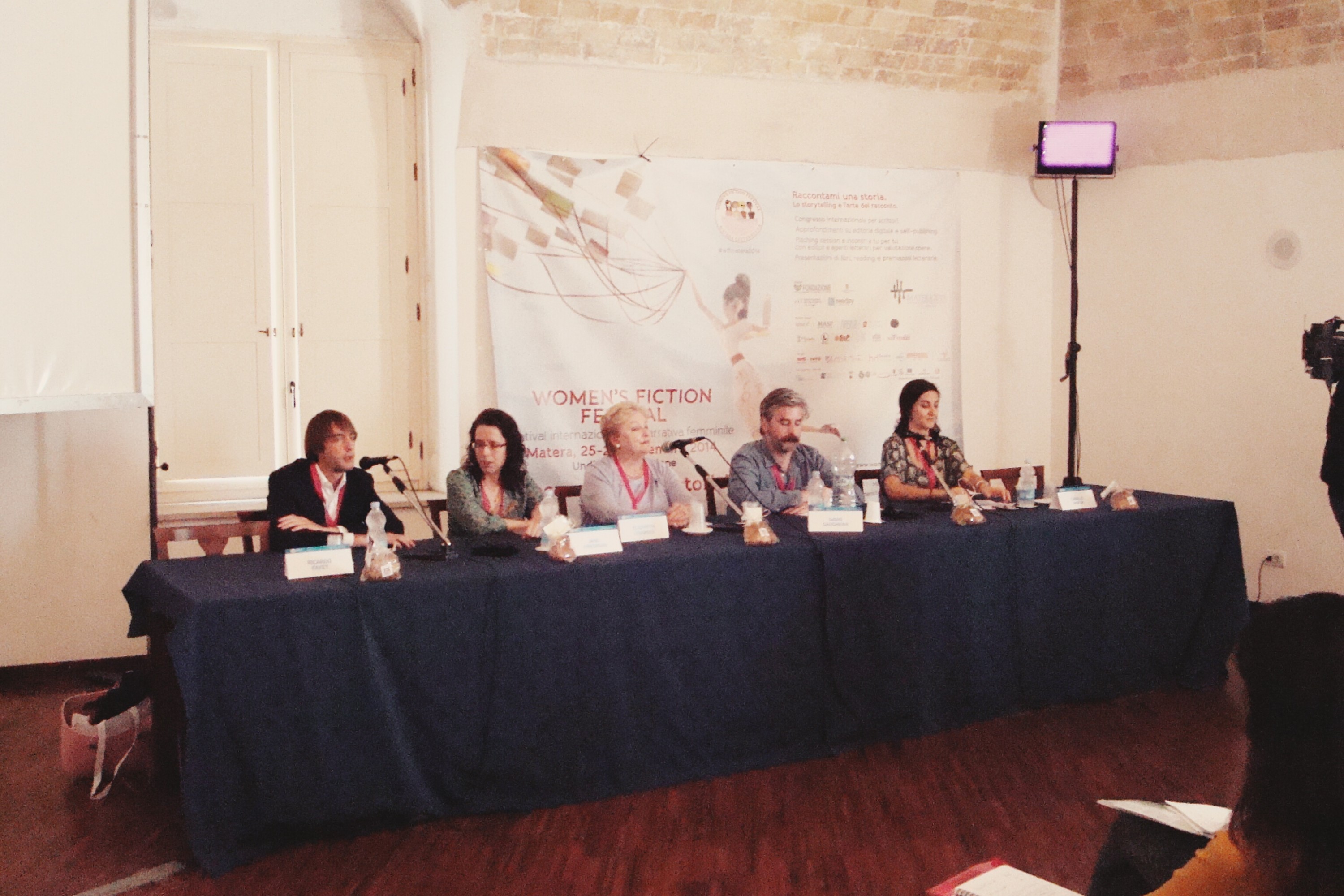
In the photo: From left, Ricardo Fayet (Reedsy founder), Jane Friedman (publishing expert and University of Virginia professor), Liz Jennings, David Gaughran (best-selling author and blogger,self-publishing guru)
Every year you tackle a different subject at the Festival. What will it be next year?
I can assure you that we spend the entire year thinking hard about what we can offer professional writers and putting together a program that helps them improve their writing while navigating the shoals of publishing. This year’s Festival has only just ended and it wouldn’t be smart to lock ourselves into things a year before next year’s event. The publishing world is changing almost daily now and we aim to be right on top of the changes. Having said that, at the writers’ conference next year we want to focus on the writing itself, at the highest possible level. Whether next year or the year after, I personally would like to think about narrative for the visual arts—for film and TV, graphic novels, comics, manga, even video games. I’d like to hear from writers who write collaboratively. I’d like to see a focus on what I feel is the next Big Thing—thrillers.
Beyond the vaulted rooms of the Monacelle hotel, there is also an Italian dimension to the Festival, held in other palazzos in town and in sites like the Casa Cava in the Sassi district. This year it was the award of a literary prize, Premio Baccante 2014, to best-selling Spanish author Clara Sànchez who had won the 2013 Planeta prize for her novel “El Cielo Ha Vuelto”. Anything planned for next year?
The Festival is two events—one public and one private. The public events are aimed at bringing writers and readers together. We organize book presentations and we work hard to make them entertaining and thought-provoking. Often we nourish both the body and the soul and offer food and wine and chocolate (a separate food category in my opinion) together with a chance to meet writers and talk about their books. That is our public mission—to promote reading in Basilicata.
Then there is the ‘private’ event, the writers’ conference. You register for it. Actually the conference is officially in two languages, Italian and English, and we have quite a few Italian editors and agents. There are a lot of English speaking agents and editors because right now there are a lot of innovations coming from the ‘Anglo-Saxon’ publishing world.
That’s why you have that translation booth in the main conference room, and, I noticed, your interpreters do an excellent job. Let me move to another subject: collaboration between writers. So many people expect writers to compete against each other. I know that you think otherwise and hold collaboration among writers very dear. Can you tell us more about it and how the Festival has helped push it forward?
Last year EWWA was born – EWWA is the acronym for , the European Writing Women Association, and it was founded by Italian authors Elisabetta Flumeri and Gabriella Giacometti – it’s primarily an Italian organization but open to all Europeans and engaged in a series of networking activities, workshops and book presentations, and I hear they have close to 200 members. And Emma Books, a digital publishing imprint aimed at women and covering a broad range of genres was also born here in Matera, in 2012 – it was Maria Paola Romeo’s brain child.
I remember very clearly my first writers’ conference in Anaheim, California, 1998, the Romance Writers of America annual conference. I registered for it and as chance would have it, I sold my first book before actually attending. So I got a little ‘First Sale’ insignia on my badge. I cannot tell you how many huge bestselling authors stopped me in the corridors and at coffee breaks to congratulate me on my sale. The friendliness and openness of the writers just blew me away. I joined a special conference group interested in romantic suspense and during the conference, what became known as the ‘Kiss of Death’ was born. KOD was and is the largest source of information for those writing romantic suspense or thrillers. They organize outings such as visits to the FBI and ATF in Washington (absolutely fascinating), meetings with police officers and federal agents, every possible help a writer could need. They set up an ongoing series of online courses and I have taken courses with FBI Special Agents, FBI psychological profilers, private detectives, homicide detectives, Special Forces soldiers…The courses continue to this day. I am overwhelmed with gratitude at the generosity of my fellow writers and I feel I have grown immensely as a writer thanks to the help of my colleagues. The more you cooperate, the further you will go. I believe in that with all my heart.
That, by the way, is the spirit of the Festival.
Now, please share your secret with us! How do you manage to write so many books and still find time and energy to organize the Festival?
Well, I’m usually pretty tired. But jokes aside, I love books and people who love books. Book lovers are my tribe. So though I work hard, I am energized both by writing and by the Festival itself. Luckily you asked this after the last Festival. If you’d asked it a few weeks before, the answer would have been quite different!
Many thanks, Liz, for answering my many questions, and I’m looking forward to the Festival next year!


